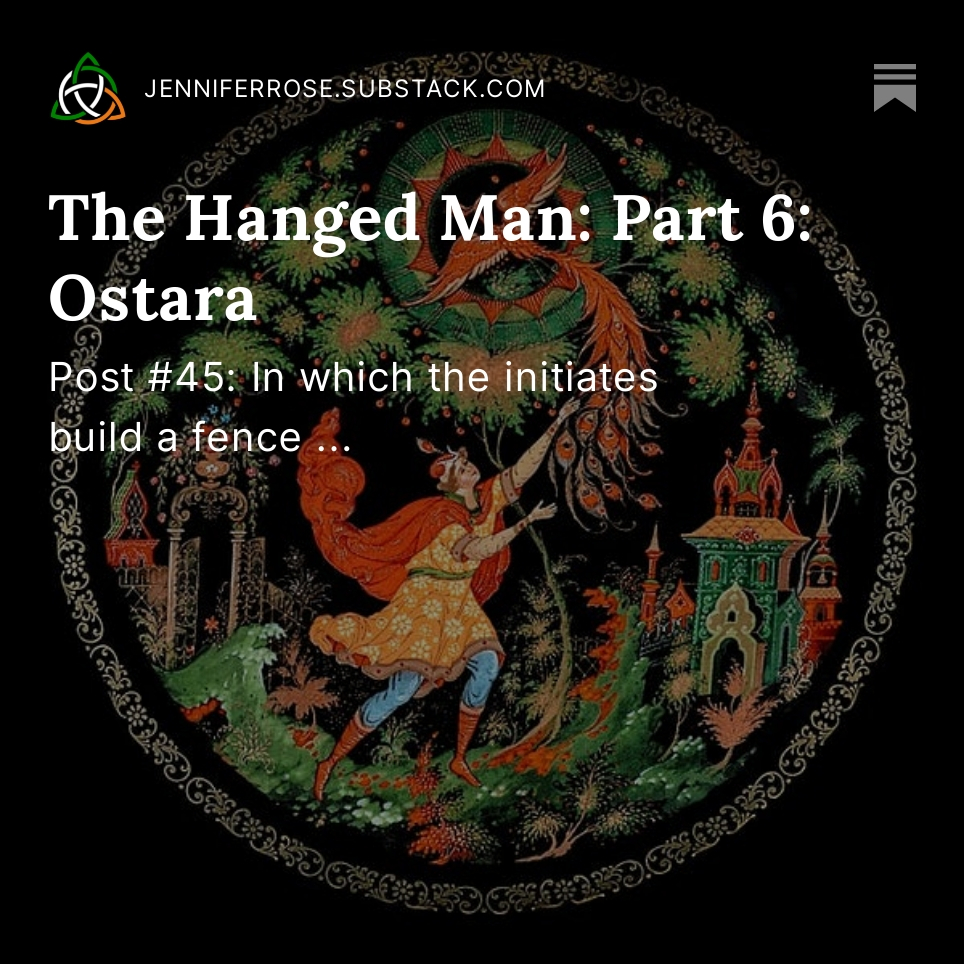by Jenny Rose | Oct 29, 2022 | Emotional Intelligence, Feelings, Love
Except I’m not. Balancing, I mean.
A few weeks ago I came across a quote: “Grief is just love with nowhere to go.” Backtracking through multiple sources, I ran it down to a woman named Jamie Anderson who wrote it in her blog, which is now gone. The quote went viral.

Photo by Joshua Earle on Unsplash
It hit me right in the heart.
I’ve written previously about my struggle with intense love that is not received. I don’t mean unrequited romantic love. I mean flesh-and-bone love, blood love, the helpless love and connection we feel for family.
My strategy all my life has been to divert the love I feel but can’t give to the intended recipient (at least not in a way I feel they receive and believe in it or even want it) to others who do need and want it. This practice relieves some of the pressure in my heart, but there are several ways it can go badly wrong. Plenty of people in the world will suck up all the love, attention, and support we give them, but have no thought, or perhaps no ability, of returning it. In this case, my painful, overfull heart becomes withered and empty and I have to detach the vampire I’ve attracted.
I’m not looking for a place to dispose of my love like it’s a worn-out sock. I’m looking for a place where it does some good. Because that’s at the heart of feeling love one can’t give – the futility of it. What’s the point of love if we have no place to give it, if love has nowhere to go?
There are places where I feel my love has been useful. Animals. Children. Hospice work. Emergency rescue work. But, aside from animals and my own children, none of these are intimate relationships sustaining me day-to-day. Animals, sadly, have shorter lifespans than we do. Children, inevitably, grow up and find their own lives, which may or may not include us.
I’ve been thinking about this quote for several weeks, intending to blog about it at some point, but always turning away from it into other subjects. It hurts to think about it. I know intellectually writing about pain helps, but loyalty to those who refuse my love stops me. Or maybe shame? Or maybe guilt? (If a family member won’t accept our love, surely the logical conclusion is we’re a terrible person?) Also, I don’t want to hurt anyone’s feelings, or be unfair, or humiliate another person.
I can always find something to write about. I’ve been posting weekly for six years. But there’s much I do not write about. Too painful. Too intimate. Too risky. Too messy.

Photo by Jason Blackeye on Unsplash
Sometimes life is like a boxing match. I have good stamina, and I’m dogged as hell. I’m organized and efficient. I try to think clearly about my choices. I’m thoughtful. But every now and then life knocks me down. Hard.
Usually I cope with vigorous exercise, writing, getting a good night’s sleep, and processing with a friend. I get back on my feet and keep going.
But every few years the blows keep coming, hard and fast, unexpected hooks and jabs.
This has been one of those times. I’m nursing my third upper respiratory infection in four weeks. Not COVID, but one of the many other plagues circulating this fall. I’ve once again pulled out the essential oil, the powdered vitamin C, the elderberry and echinacea tea, the nasal spray, the cough and cold medicine. I don’t usually take medication of any kind, but on this third round I feel so bruised and battered I’m choosing to. I’m tired out.
In between this virus, which arrived Thursday night, and the last one, which departed Monday, we discovered our dirt-floored cellar was ankle deep in water due to several inches of recent rain which caused some flooding. It’s going to take more than a thousand dollars to fix it.
Then, yesterday (Can it only be yesterday? It feels like weeks.) I was informed about the illness and injury of a family member, one of those people I love most in the world who is unable to receive it and has amputated me from their life. Now, a long way away from me as I sit here in Maine with a Kleenex box, another family member (another of my dearly loved ones) is carrying the whole situation on their shoulders: the hospital, surgery, legalities, finances, paperwork. My presence would only exacerbate the situation and make everything worse. I know it. The family member managing the crisis knows it.
So here I sit, wretched, broke, sick, and I can do nothing – nothing. A lifetime of petrified love weighs like a stone in my chest. It has nowhere to go. It never has. It’s not useful. It’s not wanted. But I can’t stop feeling it. It’s part of me.
And I’m down for the count. I’m all the way down and nothing in me is ready to get back up. My eyes are swollen. I can’t stop crying. I don’t know where the cold begins and the grief ends. All this grief, a lifetime of grief. It feels endless, bottomless. I don’t think there are enough tears in the world to wash it away. I can do nothing but wait for news and try to be a long-distance support to the one who will accept my support. I can’t seem to get and stay well. I can’t fix the cellar. A plumber in hip boots with a new sump pump will do that early next week.
How can the truest, deepest love we feel be refused and rejected?
Rhetorical question. I don’t expect an answer. I’m sure I’m not the only one who has ever asked that question. Some things just can’t be understood. They’re not fair. They’re not explicable. They’re just life. I learned some time ago to cease arguing with what is.
And what is, right now, is grief. I can’t contain it, control it, avoid it, distract myself from it. I won’t share it, except in words. I’m simply letting it wash through me, surrendering to it. Maybe that’s what I need most today. Maybe the laundry, emptying the trash (all that soggy Kleenex), my usual weekend posting and publishing, raking leaves, dumping the compost, washing dishes, and all the rest of it doesn’t matter. Maybe I can’t get back on my feet until I’ve chosen to just stay down first.
How long do we have to cry to drain a lifetime of grief?
Don’t tell me. I don’t want to know.
This is not my usual kind of post, but it is a stay down, raw, naked one. It’s what I’ve got this week. It’s the best I’ve got.
On another note, I am expanding the site. I’m adding excerpts from my books to The Webbd Wheel page. Scroll down past the overview for the excerpts. If you’re intrigued, you can go to my Substack page and read for free as I serial publish my fiction. You’ll find extensive archives, so you can read from the beginning if you wish.
To read my fiction, serially published free every week, go here: 
by Jenny Rose | Sep 17, 2022 | Connection & Community, Emotional Intelligence
It’s in the moment we take our eyes off the road and the car in front of us to reach for our water bottle that it happens.
It’s in the moment we’re preoccupied with our distress over a fight we had with a loved one before we came to work that we miss something key in the meeting.
It’s the moment of emotional reaction, the moment of distraction, the moment in which we’re trying to manage our feelings that provides an opening for accident, miscommunication, injury, even violence.
Windows are openings in boundaries, in walls and barriers and closed, airless cells. They allow egress and entry, movement. Sometimes air, sunshine, and birdsong come in and our best selves go out. Sometimes monsters and demons crawl in and our worst selves go out.

Photo by Craig Whitehead on Unsplash
Predators of all kinds look for windows, openings in our defenses, in our boundaries. Windows that can be cracked, wedged, broken, pried. Their tools are ideology, lies, personal attacks, misdirection, denial, silencing, and threats.
If our emotions can be controlled, if distrust and drama can be manufactured, if we can be put on the defensive, our windows become open holes. We are no longer able to open and close them at will, control what comes in and what goes out.
When our ability to think critically and be proactive is overwhelmed by our reactions and defenses, we cannot make thoughtful choices. We no longer have the energy and presence to look, listen, feel, and think about what we’re hearing or seeing. Our emotions hold us captive, and whoever controls our emotions has our power.
Emotional manipulation is seductive. We become attached to exercising our outrage. Our fear is addictive, so addictive we employ denial and cling frantically to what we want to believe, what we want to hear.
Predators need not show their work, cite their sources, or back up their assertions. They need not tell the truth or undergo the tension of collaboration and cooperation. They don’t need to waste their time with civil discourse, learning new information, or considering other points of view.
All they need is a lust for power and an open window. Like the screen you’re reading this on.
Oppositional energy and inflammatory language are short cuts, toxic mimics for true discourse and contribution. They provide a hiding place for those hunting for power and control, those unable to think critically or master information.
If we’re busy arguing, defending, and being distracted by our emotional hijack, we can’t evaluate situations and people clearly. If we can’t get a grip on a situation, perhaps somewhere in the background a predator has jimmied a window or two and successfully invaded our house.
Toss them out.
And then let’s repair our windows.

Photo by Henry Be on Unsplash
by Jenny Rose | Apr 23, 2022 | Emotional Intelligence, Feelings
All my life I’ve been told I overreact and I’m too dramatic, two labels which automatically invalidate my experience, feelings, and any attempt I make to communicate honestly.
Being told we’re overreacting is a sure way to shut us down, especially when we hear it regularly. It makes us question our own experience. It breaks connection and trust. It isolates us in shame.
It’s an insidious form of gaslighting.

Photo by Jonathan Crews on Unsplash
When I went through emotional intelligence coaching, I understood being told I’m dramatic is code for, “Your feelings make me uncomfortable.” It’s not a message about me at all, it’s a message about the person with whom I’m interacting.
As a child, I believed I exaggerated and I was too dramatic. I pushed my feelings down and hid them. I didn’t respond to my own distress. I didn’t ask for help. I trusted no one with my real emotions. I taught myself to become stoic and uncomplaining, to focus on the positive, to carry on no matter what.
My feelings became my enemies. I was deeply ashamed of them. They were bad and wrong and they hurt other people.
Now, decades later, I think a lot about feelings as I struggle with my re-triggered autoimmune disease. I know my current physical pain mirrors my emotional pain, which consists of passionate, intense feelings. Learning to manage those feelings more effectively is a work in progress. I do well with one at a time, but right now I’m overwhelmed with emotion. Emotional overwhelm is the trigger for physical pain. I keep right on keeping on through difficult feelings, but once the anguish is translated into back spasm, I can no longer hide or ignore my pain. Everyone else can see. Everyone else knows. I can’t hide my physical disability.
My body betrays me.
Horrors. I cringe, waiting to be told I’m too dramatic and I overreact. My feelings are wrong. They make others uncomfortable. They’re shameful, immature, crazy. I have nothing to complain about. Others have much harder lives than I do. It’s my business to support, not ask for support.
But my body tells the truth. Physically, everything hurts.
The truth beneath that truth is my heart hurts. I’m scared, I’m angry, I feel alone, I feel supported and horribly vulnerable, I’m excited about new beginnings, I feel guilty and ashamed about struggling, I feel relieved, and I don’t know how to bear my grief, both current and past. But I’m still too distant from my feeling experience to encompass all that, let alone manage it effectively.

Photo by Cristian Newman on Unsplash
So, back pain.
In the middle of this experience, I read an article by Courtney Carver from Be More With Less titled “5 Thoughtful Ways to Help You Underreact.” As you can imagine, it caught my eye.
Every day I think about this list of five strategies, and the difference between overreaction and feelings.
Overreaction is defined as a more emotional response than is warranted. Who decides what kind of an emotional response is warranted? Some people feel things very strongly and vividly; others do not. Certain events and situations trigger deep emotions for all of us. Do any of us have a right to judge another person as overreacting, especially when we can’t possibly know the entirety of their private emotional experience? Certainly, some people appear to overreact frequently, but do we stop to ask ourselves, or them, for more information? What is going on? What is behind the perceived overreaction? What need is crying out to be met? What are the feelings involved in the overreaction?
Feelings are value-neutral raw data we’re all biologically wired to experience. They’re simple. Mad. Sad. Glad. Scared. Ashamed.
We’re largely not in control of the complicated neurological and chemical experience of our feelings. We are able to control how we think about, express, and act out our feelings.
Thoughts and feelings are not the same thing.
I’m familiar with some of the strategies Carver writes about in her piece, but I’ve never seen such a concise and useful list of ways to manage habits of thought leading to “overreaction.”
It’s not our business to be concerned with onlookers who attempt to shut us down because of their own discomfort with feelings. Our business is learning how to refrain from shutting ourselves down or allowing anyone else to do so. Our business is taking care we don’t hurt ourselves as we feel our feelings.
Here’s Carver’s list:
- Do what you can. Let the rest go.
- Determine if any action or reaction is useful or effective in the first place. Does this deserve my time and energy?
- Don’t take anything personally.
- Distinguish between inside and outside. We can’t control what happens outside us. Our power lies within us.
- Closely related to the last strategy, if we feel we’re overreacting, what else is going on? Are we sick, hurt, dealing with unfinished feelings or unhealed wounds, struggling with addiction, lonely, tired, hungry? We need to focus on supporting ourselves.
Some people don’t want to deal with feelings, their own or anyone else’s. I understand. Such people will always struggle with someone like me, who feels deeply and expresses vividly. To them, I will always look as though I’m overreacting.
What overreacting means to me, though, is the intensity of my feelings is negatively affecting my health, and I need to find ways to support myself. I don’t want to feel less. I want to feel better.

Photo by Ben White on Unsplash
by Jenny Rose | Apr 16, 2022 | A Flourishing Woman, The Journey
In the online Red Cross Lifeguard Course, there’s a segment titled “When Things Don’t Go As Planned.” Every time I come across it, I smile.

Photo by NeONBRAND on Unsplash
Yes, indeedy. Because things often don’t go as planned.
Learning, in a real or virtual classroom, from text or videos or slideshows or YouTube, is necessarily simplified. The situations are controlled. Even the blood looks like cherry-flavored candy.
As a blogger, I ruminate, explore, define, proceed logically, and research. I’ve touched on so many different topics over the years here on Harvesting Stones. I’ve examined needs and boundaries, reciprocity and connection, contribution and authenticity.
However, this kind of intellectual exercise, learning at a remove, is not where the real mastery is.
The mastery comes when we put it all into action in real life. And real life is unbelievably messy. Real life is a loose cannon on a rolling deck. Real life does not go as planned.
We are occasionally plunged into chaos, into complicated experiences involving a lot of feelings and requiring all our skills. Our predictable routines and schedules turn inside out. We are not able to care for ourselves or anybody else as usual. We become exhausted. Our personal demons crawl out of our subconscious attics and cellars and play with us. Our physical weaknesses take advantage of our stress. We lose track of our power. We lose track of ourselves.

Photo by Quino Al on Unsplash
I would avoid such times if I could. I believe most of us would. Few people enjoy living in a maelstrom. The thing is, the maelstrom holds gifts, insights and growth we would never realize if we always lived serene, well-controlled lives.
I’m writing this on Wednesday morning. A week ago today, less than 24 hours before closing on the house we’re selling and the house we’re buying, closing was cancelled. Well, “extended.” I’m not sure there’s a difference, but my hope is pretty frayed right now, so I’m inclined to be pessimistic.
I thought I had been living in chaos before that abrupt last-minute change of plans, but those far-off days seem like a cake walk compared to what the last seven days have been like for me.
When our lives fall apart in painful ways, part of the stress of it is the rest of the world goes right on without giving us space and time to process, remember our resilience, and get back on our feet. I still needed to figure out how to get the car in to get the studded snows changed. I still have bills to pay. I still have a job. I still need to search the stores for cat food. I still have family birthdays to remember. The bed still needs to be made, the dishes washed, the laundry done. I want to remain consistent in my writing.
Autoimmune disease is highly opportunistic. I have not had this amount of stress since I moved to Maine seven years ago, and within a few hours of the cancelled closings my back went into spasm, which means I need all the love, rest, and care I can give myself right now, in the middle of the shit show. My body would feel better if we could close and get this move over with. And I can’t possibly move with this level of pain.
Meanwhile, the world turns. I feel guilty about my struggle when I know people in Ukraine are losing their homes, lives, loved ones, and perhaps their country. I tell myself I’m being dramatic, I’m whining, I never deserved for things to work out in the first place, etc., etc.
I told you about the personal demons crawling out, right?
So what do we do during times like these? How do we get through them? How do I turn the concepts of letting go, courage, detachment from outcomes, and emotional intelligence into tools to help myself? It’s all so clear, logical, and neat on the page/screen. I believe every word I write. It’s all organized and categorized.
When things don’t go as planned, nothing is neat, organized, or categorized. We can’t think well. Our feelings sweep us from fear to fury to despair and back again.
In my old dance group, we used to say when you feel overwhelmed, dance small.
Dance. Small.
Dancing small is focusing on breathing in and out. It’s making small movements. It’s wrapping your arms around yourself, facing a wall or a corner, closing your eyes, and concentrating on the floor under your feet. It’s deliberately sinking into yourself and letting everything and everyone else go as best you can. It might be the healing release of tears.

Photo by Leon Liu on Unsplash
This strategy doesn’t make the chaos go away, but it does give us a small resting place within the chaos. It allows us to find and hold onto ourselves. It gives us a tiny bit of power. It allows a little space for rational thought, for us to remind ourselves of what’s true:
- Nothing stays the same; all things pass
- Things invariably work out somehow, some way
- There is always much to be grateful for
- We are allowed to have feelings about our experience, and they’re allowed to be messy
- We always have some choice
- None of it is personal
This week, though in many ways painful and difficult, has also provided me with valuable practical experience in using some of my newer skills. It’s given me a chance to stay in my own power, always a worthy practice. I’ve had an epiphany about a longstanding destructive pattern in my relationships which has emotionally freed me in significant ways. Paradoxically, the current chaos has brought me clarity.
I’ve also been touched and humbled by the support I’ve received from friends and other members of my community. I am not alone.
Most of all, it’s given me a chance to deal with my feelings. It occurs to me the word “stress” is misleading. I don’t need to deal with my stress. My feelings need attention. They need to be named, welcomed, fully experienced, and released, no matter if they’re in my head, heart, or back. Managing my feelings will take care of my stress and my physical discomfort.
By the time you read this, things will have changed. Perhaps we’ll have a new closing date. Perhaps I’ll have decided to make a different plan. Perhaps we’ll still be in limbo, but it will be a different day in limbo. Today, we’ve taken my car in to get the tires changed, so that’s something taken care of. At some point, the muscles in my back will unclench and I’ll move freely again and be able to resume exercise.
Meanwhile, frogs boom, chuckle, and peep in the pond. The birds are busy and the spring dawn chorus gladdens each morning. The phoebe has returned and hunts from the barn roof. Rain falls and the sun shines. The mud is gradually drying up. I will feed the cats, play with them, clean their boxes. I’ll go to work, teach swim lessons, wipe down the locker rooms, read the pool chemicals, guard lives, answer the phone. I’ll feed myself, drink cups of tea, rest, write, read, and sleep. Time will pass. Days will pass.
It will all pass, the things that go as planned, and the things that don’t.

Photo by henry fournier on Unsplash
by Jenny Rose | Dec 11, 2021 | A Flourishing Woman, The Journey
I subscribe to Seth Godin, who provides me with a few sentences of daily food for thought in my Inbox. This week, I read this link about the difference between accuracy and precision.
Godin’s distinction between the two is one I never thought about before, but I have been thinking about roots.

Photo by Arun Kuchibhotla on Unsplash
Deep roots. Strong roots.
Roots grow toward sustenance. They don’t grow toward, or in, barren soil. Cell by cell, rootlet by rootlet, inch by inch, they spread, seeking water, seeking the soil and mineral resource they need. Cell by cell, stem by stem, twig by twig, inch by inch, trees and plants grow aboveground in search of sunlight.
Trees and plants want to live. They seek the resources necessary to do so. Survival is their simple, accurate agenda. A seed germinates and grows toward successful reproduction, wherever it happens to be.
Exactly how the roots and crown need to grow, exactly where the best sustenance and water will be found, exactly what the quality and quantity of sunlight will be, all these precise determinations have no meaning unless the imperative to survive exists, and can’t be planned ahead. It all depends on context.
The accuracy comes first. Then the precise details.
I’m thinking about this because we are relocating, not from Maine, but from this old farmhouse.
A year ago, I wrote a series of posts about holistic management, and I’ve been reviewing my holistic plan regularly ever since. My intention, my accurate intention, in Godin’s language, is to create a simpler, more sustainable life.
The precise details? Well, that’s a hairball of monstrous proportions that’s currently keeping me up nights.
Maybe it doesn’t need to. I started with an accurate intention and have taken all kinds of steps toward that, not only with my physical living situation, but also with my writing and life in general. The precise details of each of those steps were not visible to me a year ago when I created my plan and started acting. I moved forward, and identified and dealt with specifics as I came to them.
When I was younger, I had an easier time with big changes, because there was always time to adjust, to go back, to change my mind, to make another choice in the future. But now, as my partner and I age, it feels more urgent to get it exactly right and position myself perfectly for any eventuality.
This is silly, of course. The things we agonize over usually never happen, and if they do, they don’t happen in the way we predicted. The challenges we do encounter are often complete surprises we could never have foreseen or imagined.

Photo by yatharth roy vibhakar on Unsplash
Godin’s thought for the day reminded me, again, that life is a journey. It’s a process. It unfolds. Much as I’d like to know exactly where and when, who and how, those precise details are hidden in the future. It’s not time to know them yet. Right now, today, I need to live those questions and steer with my intention: a simpler, more sustainable life.
That’s the tree I planted last year. Now it’s beginning to grow. The roots are seeking nourishment. The plant aboveground is seeking sunlight. When I look back over the last twelve months, I can see how much growth there’s been, but as I lived the last year I didn’t think about growth or progress. I dealt with specifics arising out of my accurate, intentional seed and put one foot in front of the other.
Now we approach the still, dark, heart of winter, and as I take stock, look over my shoulder and raise my gaze to the horizon ahead, I realize afresh movement in the right direction is what counts. The specifics reveal themselves in their own time. Whatever my feelings of anxiety, fear, and overwhelm, I’m also flowing in the current of my accurate intention.
I’m forced to admit I have a choice. I can rest in faith in myself, in my intentions, and in life generally. I can cultivate my curiosity and sense of exploration, discovery, and fun.
Or I can make myself miserable trying to figure out every single detail yesterday and pushing this important transition to go as fast as possible so I don’t have to feel my feelings and wrestle with my panic-stricken thoughts any more.
It’s really not a choice I want to make. I don’t feel I have the energy to fight my compulsion to speed like a maniac through my life right now, obsessing about money, cleaning, and showings, collecting and packing boxes, and checking online every 10 minutes for new MLS listings. In Central Maine. In December. In our modest price range.
But even as I think that thought, I know it’s a lie. Whatever will be, will be. There’s only so much power I have in this picture. What’s really at stake is whether I enjoy the ride as much as I can or exhaust myself, risking illness and injury, just when I most need to be healthy and whole. One way or another, we are leaving this place and necessarily going somewhere else. Part of me wants to throw up my hands and spin out of control, but the wiser, saner part of me sees the choices clearly and knows which ones to make.
Sigh.

Maine Farmhouse and Barn














